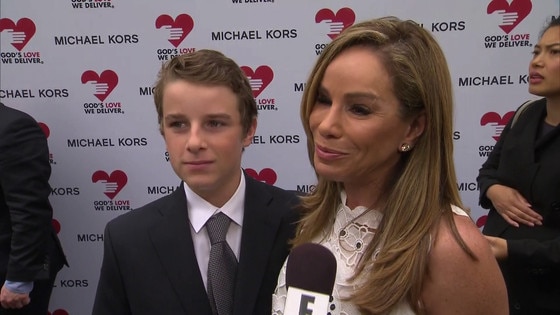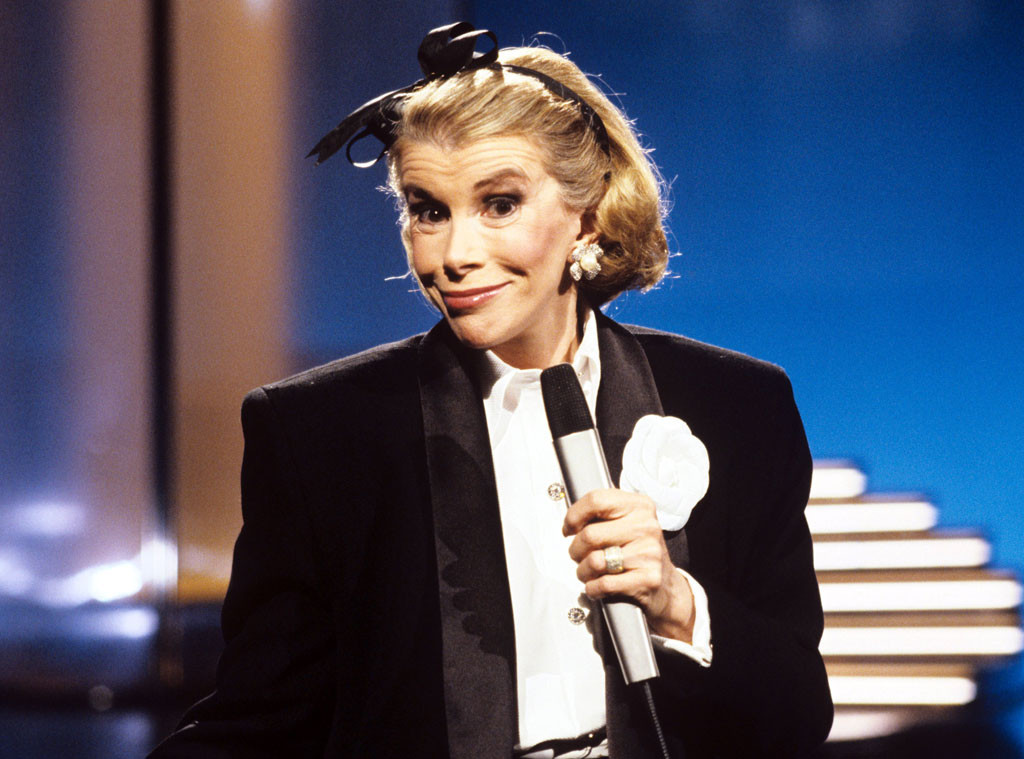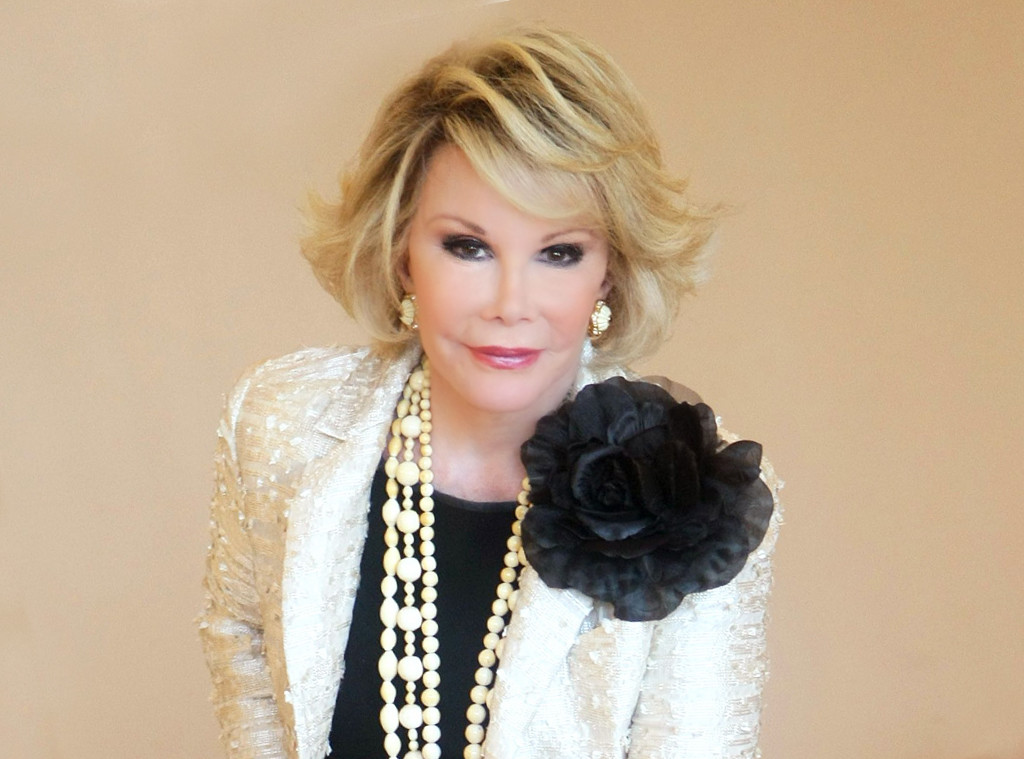It’s been five years since the world was forced to say goodbye to Joan Rivers.
Days after the trailblazing comedian and seemingly indefatigable workhorse was placed into a medically induced coma after she experienced serious complications and stopped breathing during a minor throat procedure at an outpatient clinic in Yorkville, Manhattan, the legend whom Carol Burnett would later honor as “the poster child for the Energizer Bunny” had been revealed to be a mere mortal like the rest of us, succumbing to brain damage caused by a lack of oxygen on September 4, 2014 at 81 years of age.
Delivering the eulogy at her private memorial service at Temple Emanu-El in Manhattan just three days later, Howard Stern described Rivers to the estimated crowd of 1,500 attendees, including celebrities like Barbara Walters, Sarah Jessica Parker, Rosie O’Donnell and even future president Donald Trump (proving that even nemeses like those last two could put aside their numerous differences to pay tribute to their shared friend), as a “troublemaker, trail blazer for comics everywhere, never apologizing and never caring what people thought.”
“She did everything on her own terms,” the radio host continued. “She fought the stereotypes that women can’t be funny, they should stay in their place, stay home.”
And it’s true. You can draw a straight line from Rivers getting on stage at one of the many comedy clubs in the Greenwich Village area of NYC in the early ’60s, “telling it like it is” at a time when just saying the word “pregnant” on television was forbidden, let alone talking about birth control (as Rivers did, no f–ks given) to the Kathy Griffins and Amy Schumers and Ali Wongs and Tiffany Haddishes (and Nicole Byers and Ilana Glazers and…you get it) of the world. Without her carving out space for herself in comedy’s boy’s club out of sheer force of will and impeccable timing, it’s hard to imagine a world where all those other funny women would get the opportunity to do their thing. Hell, it’s hard to imagine what contemporary comedy, full stop, would look like without Rivers’ influence on the art form.
But to limit her legacy to just the world of comedy would be unwise.
REX USA/ITV
She, alongside daughter Melissa Rivers and the E! Network, would also give birth to an entire industry in 1994 at the Golden Globes pre-show with just four simple words: “Who are you wearing?” From that moment on, the red carpet would never be the same. In fact, thanks to Rivers’ fun, witty and, yes, sometimes snarky approach to celebrities and their fashion choices, it would very often come to overshadow the event for which everyone was arriving. The comedian’s work for E! on the red carpet would eventually morph into Fashion Police, which debuted on the network on 2010 with Rivers at the helm until the day she died.
Prior to transforming the red carpet, Rivers also helped change the face of late-night TV, albeit temporarily, when, after serving as Johnny Carson‘s permanent guest-host on The Tonight Show (where she’d first been hired by the legendary comic as a writer in 1965) since 1983, she became the first female host in history when The Late Show Starring Joan Rivers debuted on Fox in October 1986. The move infuriated Carson, who hung up on her when she called him about it and never spoke to her again, getting her blacklisted from the long-running NBC series until Jimmy Fallon took over the same year she died. Seven months later, Rivers and Edgar Rosenberg, her second husband who served as the show’s producer, were fired by Fox. (Late night has been slow to follow Rivers’ lead, at least on the network side, with Lilly Singh‘s upcoming A Little Late, debuting September 16 on NBC, the first female-fronted series since The Late Show.)
Neither the humiliation of having her show yanked away from her nor the devastation that followed when Rosenberg committed suicide three months later, leaving her in a remarkable amount of debt, were enough to stop Rivers. She quickly launched a syndicated daytime talk show, The Joan Rivers Show, in 1989, that would run for five seasons and earn her the Outstanding Talk Show Host Daytime Emmy in 1990. That same year, she’d prove to be a pioneer in yet another area of showbiz, partnering with a young QVC, then only four years into its existence, to design jewelry, clothing and beauty products. “In those days, only dead celebrities went on [QVC],” she told the Staten Island Advance in 2004. “My career was over. I had bills to pay.”
The gamble paid off. By the time of her death, her QVC sales had exceeded $1 billion, with the Joan Rivers Classics Collection alone generating $4.5 million in sales annually, making her one of the network’s top sellers, according to The Hollywood Reporter. And thanks to Rivers, it’s now not uncommon to see stars like Lisa Rinna, Ellen DeGeneres, and Catherine Zeta-Jones partnering with the home shopping channel.
Lionel Cironneau/AP/Shutterstock
In the five years since Rivers left us, the world has changed at such a pace that it’s hard to imagine how her caustic, unapologetic, and sometimes even cruel comedy might fit in. Cancel culture would have a field day with her and she might’ve even deserved it. What’s certain, though, is that it wouldn’t have deterred her one bit. “I’ve learned to have absolutely no regrets about any jokes I’ve ever done,” she told THR in 2013. “You can tune me out, you can click me off, it’s OK. I am not going to bow to political correctness. But you do have to learn, if you want to be a satirist, you can’t be part of the party.” (Though, she was one of only four Americans invited to Prince Charles‘ wedding to Camilla Parker Bowles in April 2005, so she wasn’t shut out of all the fun.)
Months after her death, her daughter paid tribute to Rivers in the pages of The Hollywood Reporter. “You know what my mother said?” she wrote. “She said, ‘I’ll never get the respect that I deserve until I’m dead.’ It feels s–tty because she was right.” And even in death, the respect was still lacking: Though she posthumously won a Grammy for Best Spoken Word Album in 2015, she was left out of that year’s In Memoriam segments at both the Grammys and the Oscars. Though, something tells us that, wherever she was, she saw the humor in it.
“Never be afraid to laugh at yourself,” she once said. “After all, you could be missing out on the joke of the century.”
And Joan Rivers never missed a joke. Not once.
(E! and NBC are both part of the NBCUniversal family.)
Source: Read Full Article


